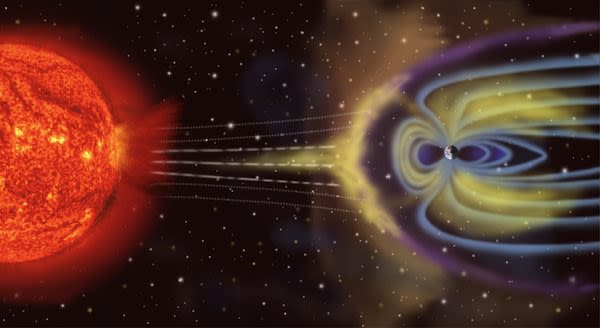Search results
Dec 6, 2023 · Home. Clean energy. Solar energy: What you need to know. Written by: Emily Walker. Updated Dec 6, 2023. 10 min read. Generated from the sun, solar energy is the most abundant energy resource on Earth. Every day, we harness solar power in the form of either electric or thermal energy to power or heat homes, businesses, utilities, and more.
News about Centre County, solar energy, air pollution
News about Northern Lights, geomagnetic storm, Inland Northwest
News about aurora, solar flare, solar storms
Also in the news
Photovoltaics Basics. You're likely most familiar with PV, which is utilized in solar panels. When the sun shines onto a solar panel, energy from the sunlight is absorbed by the PV cells in the panel. This energy creates electrical charges that move in response to an internal electrical field in the cell, causing electricity to flow.
Solar energy is the fastest growing and most affordable source of new electricity in America. As the cost of solar energy systems dropped significantly, more Americans and businesses have taken advantage of clean energy . Solar Energy Technologies Office.
Aug 29, 2023 · Solar energy is a form of renewable energy, in which sunlight is turned into electricity, heat, or other forms of energy we can use. It is a “carbon-free” energy source that, once built, produces none of the greenhouse gas emissions that are driving climate change.
Last reviewed: December 27, 2022. Also in Solar explained. Solar. Photovoltaics and electricity. Where solar is found and used. Solar thermal power plants. Solar thermal collectors. Solar energy and the environment. Learn more. Solar Energy Basics. Solar Energy Technologies Office.
3 min read. Solar energy is the technology used to harness the sun's energy and make it useable. As of 2011, the technology produced less than one tenth of one percent of global energy demand....
Fast Facts About. Solar Energy. Principal Energy Uses: Daylight, Electricity, Heat. Forms of Energy: Thermal, Radiant. Solar energy is radiant energy from the sun—a fully renewable energy resource. We use the solar resource to provide daylight, electricity, and heat in four ways (in order of prevalence):





